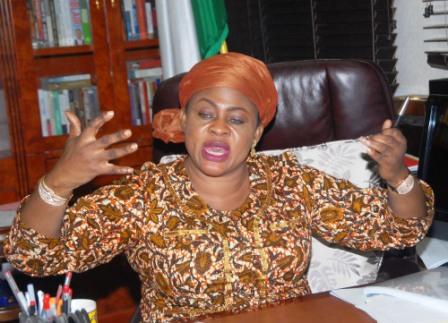On January 29, 2016, the Supreme Court made a landmark, and now a highly controversial ruling recognizing the Oguebego faction of the Anambra PDP Exco as the authentic party leadership in that State. Since that ruling, there has been a rash of divergent interpretations, the most notable being the postulation that the elections of all the legislators (Federal and State) issuing from the felled Emeakayi faction have been nullified; and the candidates rejected from the Oguebego faction shall now be sworn-in. Of all the interpretations of the true reach of the judgment, this particular one is too broad, and therefore wrong – for the following reasons:
First, at page 37 of the judgment, the Court stated that the case “was not about the conduct of a primary election nor a dispute over which organ of the political party i.e. the PDP that has the authority and competence to conduct a primary election”. For avoidance of doubt, this very statement was gleaned, and adopted by the Court from the pleadings filed by the Counsel to Oguebego – the lead appellant and beneficiary-in-chief of the judgment. Under the doctrine ostare deceases, this very part of the ruling constitutes the ratio of the judgment and should therefore form the kernel upon which the true reach or limits of the judgment can be determined.
Second, the ‘candidates’ now seeking to cash-in on the judgment, most notably Annie Okonkwo, Chris Ubah, and Prince Emeka were not parties to the suit. It’s only Oguebego and his Exco that were parties to the suit. Thus, the judgment bears benefits only to Oguebego and his Exco – going forward, and thus cannot relate back to, willy-nilly, award the legislative seats won by PDP to the extant candidates produced by the Oguebego faction.
Third, Chris Ubah, etc, (non-parties in the suit), and even Oguebego (the party-in-chief) never requested the Supreme Court to declare them the duly elected legislators.
So, given that a court never gives a relief not prayed for, the judgment stayed true to its limits by tellingly stopping short of declaring the Oguebego candidates the new occupiers of the legislative seats in question. The sole departure – in recent times – from this universal rule was the case of Amaechi, but which later was repealed by Section 141 of the Electoral Act, and thus is no longer the lex loci (the law of the land).
Fourth, and to be clear, Section 141 prevents the Courts from declaring a candidate a winner if he didn’t participate in ALL the stages of the election. None of the candidates springing from the Oguebego faction participated in the general election, either factually or legally, even though they have argued that they continued with their ‘campaigns’ as non-candidates. This argument is a fallacy because the ‘participation’ contemplated under Section 141 is one in which the candidate is the ‘statutory’ and contemporaneous candidate on the ballot, not a non-candidate who engaged in a self-serving ‘token’ campaign in the expectation of, later in time, thwarting the fell consequences of Section 141.
Fifth, it’s not the State Exco, standing alone, that finally, exclusively or ultimately determines who gets the PDP federal legislative nominations. It is, instead, the PDP National Exco; or at least in conjunction with the State Exco, but with the National Exco having the upper hand. That much has been upheld by the Courts in all cases in pari material, including, most recently, the Court of Appeal in its judgment nullifying the election of Uche Ekwunife. On the basis of the foregoing, it is my considered opinion that INEC should immediately seek the legal opinion of the Attorney-General of the Federation on whether it can overreach the judgment and proceed with a whole-scale administrative (not judicial) nullification of all the legislative seats affected.
If the AGF’s gavel falls in favor of such nullification, INEC shall then proceed with a re-run poll in Anambra South and North only, but not in Anambra Central which is still subject to another primary asordered by the Court of Appeal. Conversely, it is quite plausible that the AGF might instead wax conservative (and legally more sound) and thereby bear on the side of new primaries, instead of a straight re-run sans primary.
Failing AGF’s timely intervention, parties may be emboldened to re-approach the courts with a flurry of new suits seeking interpretations that are advantageous to their divergent positions. If this happens, the easiest injunctions that will ensue will be the ones seeking to stop a free-run swearing-in of all the candidates from the Oguebego line-up; and a return of Annie Okonkwo as the candidate, without a new primary, for Anambra Central.
To be sure, this later one is still a subject of a subsisting and potentially meritorious suit by Dr Obiora Okonkwo, one of the combatants for the Anambra Central PDP senatorial nomination. Plus, Victor Umeh of APGA will most likely proceed to court and will, in all likelihood, quickly succeed in stopping PDP from submitting Annie Okonkwo’s name if it turns out that he is not a product of a new primary participated in by all or any of the still-interested aspirants from the ill-fated PDP primaries of late 2014.
* Ejimakor, a lawyer, writes via alloylaw@yahoo.com

